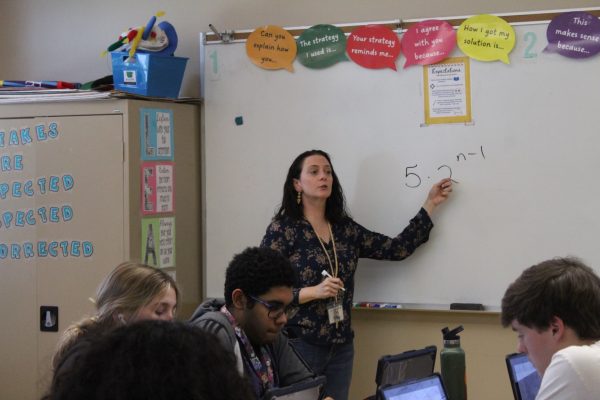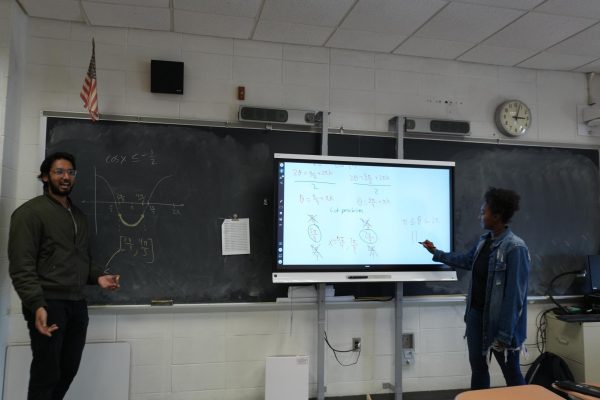Gifted kid burnout; students suffering in silence
A recent influx of videos from teenagers making fun of “Gifted Kid Burnout” and its negative side effects on a wide variety of social media platforms from Snapchat to Tik-Tok has shed light on a rather large issue.
April 15, 2021
A recent influx of videos from teenagers making fun of “Gifted Kid Burnout” and its negative side effects on a wide variety of social media platforms from Snapchat to Tik-Tok has shed light on a rather large issue with its roots deeply embedded in the American education system.
The gifted kids in question can be anyone who was identified in school by the Gifted and Talented test required by the National Association for Gifted Children (NAGC) or those who generally excel in academics by taking advanced classes such as Pre-AP, AP, and honors courses.
Gifted and Talented programs are introduced in most public schools from a relatively young age and are designed to stimulate children who excel academically and typically socially as well. Similarly, the Advanced Placement programs [AP/Pre-AP] are designed for students to get ahead in courses and earn college credit.
NAGC partners each year with state education agencies to identify gifted students. Schools are required to provide the testing to each student. The U.S Board of Education does not require all schools to offer Advanced placement courses anyone can self study and take a test at the end of the year for college credit.
While getting ahead academically is a positive effect from partaking in one of these programs, it is important to understand the negative effects as well. One of them being asynchrony-like behavior developing in gifted students.
Asynchrony development is used to describe gifted kids who are not socially or intellectually compatible with their classmates due to their advanced cognitive abilities.
This can lead to depression, anxiety and even a deficit in the development of social skills.
Caroline Kivett, a sophomore at Bishop McGuinness Catholic private High School, was placed in the Gifted and Talented program in the 3rd grade. She describes her educational experience as being exceptionally easy until she was finally was challenged in high school. Kivett has had her bouts with anxiety and stress dealing with the life of attending advanced classes and maintaining her role in the school theater program.
“After that week I felt so drained. Every moment at school was spent on homework…I put that all [stress] on me. It was extremely draining” Kivett said.
According to a study done by Cambridge University it is common that many educators do not recognize or meet the needs of gifted students as there is a false perception that they can look after themselves.
These false perceptions create unrealistic expectations of being self sustainable have been known to cause teachers to expect an unhealthy amount more from them in an academic sense.
Emelia Cherry, a sophomore currently attending Casady School, was placed in the Gifted and Talented program in elementary school and skipped a grade due to her above-average intelligence. She has never gotten below a B on a report card throughout her academic career. Cherry has also felt the weight of the expectations placed upon her from a very young age.
“Those expectations would always make me feel very stressed or overwhelmed and I felt like I had to be perfect. I would often get in trouble for making ‘simple mistakes’, which I did very often due to my ADHD that wasn’t diagnosed until 10th grade,” Cherry said.
The same expectations have been internalized by students and manifested into an even more negatively damaging side effect.
“I work myself up a lot and I put all my effort into things. The problem is if I do it all physically I run off my mental and social energy. I don’t like to lose or be second and I push myself to be the best and if it doesn’t happen I typically reach my breaking point,” Kivett said.
Some gifted students have found that the overwhelming amount of pressure from their parents causes them unwanted stress regarding their education.
Maysa Slobodov, a Gifted sophomore at Casady School, rates her stress levels as typically 7/10 [10 being the highest] over just generally how they are performing at school. Her parents monitor her grades and put pressure on her to succeed.
“My parents were really strict with grades and did not allow anything below an A. They don’t get as involved, but still want me to have all A’s and do not like it if I do not,” Slobodov said.
Collectively all these unfortunate aspects that come with being in a Gifted and Talented program eventually can lead to emotional burnout.
“Burnout” is described by understood.org as “a state of mental, physical, or emotional exhaustion.” Burnout can also be caused by the hectic schedules of students. All interviewed students have admitted to feeling burnout in the past year.
“I’ve experienced it [burnout] so many times, but my grades haven’t slipped due to burnout because of my fear of the future and the idea that grades will have a very large impact on my future,” Cherry said.
To learn more about emotional burnout click here.
This story was originally published on The Marionette on April 15, 2021.



























![IN THE SPOTLIGHT: Junior Zalie Mann performs “I Love to Cry at Weddings,” an ensemble piece from the fall musical Sweet Charity, to prospective students during the Fine Arts Showcase on Wednesday, Nov. 8. The showcase is a compilation of performances and demonstrations from each fine arts strand offered at McCallum. This show is put on so that prospective students can see if they are interested in joining an academy or major.
Sweet Charity originally ran the weekends of Sept. 28 and Oct. 8, but made a comeback for the Fine Arts Showcase.
“[Being at the front in the spotlight] is my favorite part of the whole dance, so I was super happy to be on stage performing and smiling at the audience,” Mann said.
Mann performed in both the musical theatre performance and dance excerpt “Ethereal,” a contemporary piece choreographed by the new dance director Terrance Carson, in the showcase. With also being a dance ambassador, Mann got to talk about what MAC dance is, her experience and answer any questions the aspiring arts majors and their parents may have.
Caption by Maya Tackett.](https://bestofsno.com/wp-content/uploads/2024/02/53321803427_47cd17fe70_o-1-1200x800.jpg)
![SPREADING THE JOY: Sophomore Chim Becker poses with sophomores Cozbi Sims and Lou Davidson while manning a table at the Hispanic Heritage treat day during lunch of Sept 28. Becker is a part of the students of color alliance, who put together the activity to raise money for their club.
“It [the stand] was really fun because McCallum has a lot of latino kids,” Becker said. “And I think it was nice that I could share the stuff that I usually just have at home with people who have never tried it before.”
Becker recognizes the importance of celebrating Hispanic heritage at Mac.
“I think its important to celebrate,” Becker said. “Because our culture is awesome and super cool, and everybody should be able to learn about other cultures of the world.”
Caption by JoJo Barnard.](https://bestofsno.com/wp-content/uploads/2024/01/53221601352_4127a81c41_o-1200x675.jpg)














